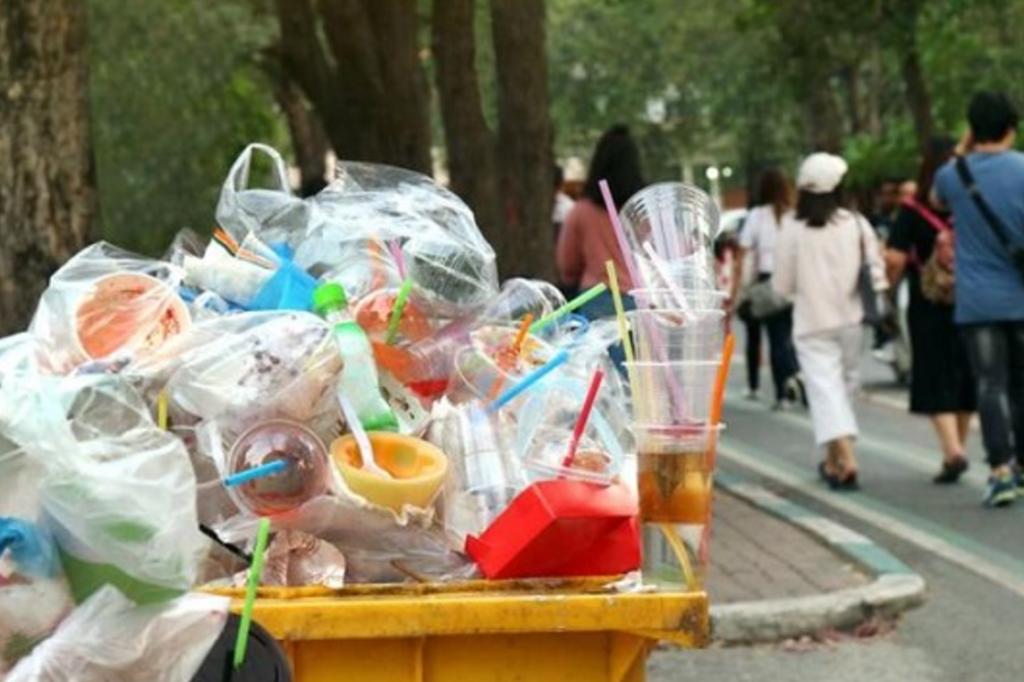December 2, 2024 – Southeast Asia Grapples with Plastic Pollution Amid Recycling Challenges
Southeast Asia is in the spotlight due to its pressing plastic pollution issue. The region’s lack of recycling infrastructure has become a major bottleneck in handling the massive influx of waste from developed countries. A 2023 study revealed that Indonesia, the Philippines, and Vietnam rank high among nations with poorly managed plastic waste, generating over 1.5 million tons of plastic trash annually, most of which is incinerated or landfilled instead of recycled.

In response to this critical challenge, countries like Thailand, Malaysia, and Vietnam have started restricting waste imports from Western nations and promoting sustainable consumption and recycling practices. However, despite the economic diversity and unique circular economy features of South Asian countries, overall adoption remains slow. According to AsiaMB, without enhanced coordination to reduce pollution, South Asia’s emissions could account for 19% of the global total allowed by the Paris Agreement, painting a grim picture.
The 2020 SEA Circular report highlighted that nearly half of consumers in South Asia believe improved waste collection is key to reducing plastic waste, but the lack of recycling bins hinders recycling efforts. Dhaka, Bangladesh, for example, generates 5,000 metric tons of waste daily, yet only half is properly managed, with low recycling rates exacerbating the climate crisis. Effective recycling of all mismanaged plastic waste could cut greenhouse gas emissions by 229 million tons in the region. Against this backdrop, sustainable packaging producer Mainetti has expanded its recycling operations to serve global clients in Bangladesh, with its new Dhaka factory supporting the Polyloop recycling initiative to keep clear polyethylene in a closed-loop supply chain.
Some Southeast Asian countries have made progress in waste management systems. Household waste in Indonesia, Malaysia, the Philippines, Thailand, and Vietnam is collected at least once a week for 89% of the population. Malaysia plans to establish six waste-to-energy plants by 2025 to reduce reliance on landfills. Singapore provides recycling bins to households through its national recycling program, gradually increasing recycling rates, but still faces low consumer participation, underscoring the importance of individual contributions to the circular economy.
Raising consumer awareness is crucial. Forty percent of materials in Singapore’s recycling bins are contaminated and unrecyclable, highlighting the urgency of consumer education and behavior change. The SEA Circular report noted that only 54% of consumers in five Southeast Asian countries participate in recycling, and 33% consider sustainability when purchasing. Nonetheless, 91% of consumers are concerned about plastic’s environmental impact and seek more education. Societal change is vital to accelerating the shift towards widespread recycling in South Asia, prompting increased awareness campaigns.
Businesses must also shift their operations to prioritize sustainability. While 82% of companies are concerned about plastic pollution, only 48% are satisfied with current sustainability practices. Less than 45% of countries prioritize recycling and reuse programs. To boost consumer participation and recycling rates, businesses can implement strategies such as clear recycling guidelines, standardized circular economy labels, and collaborations with non-profit organizations to promote plastic recycling. Mainetti’s partnership with the Ellen MacArthur Foundation sets an example for the industry.
In conclusion, South and Southeast Asian countries must collaborate to overcome challenges and achieve a fully circular economy. Governments should establish robust recycling infrastructure, consumers should properly recycle their purchases, and businesses should adopt sustainable practices to drive industry transformation. With these adjustments, South Asia can lead the way in circular economy development, contributing to a more sustainable and secure future.














